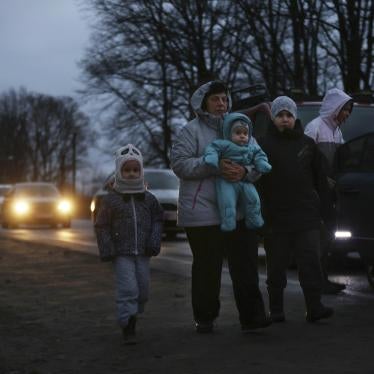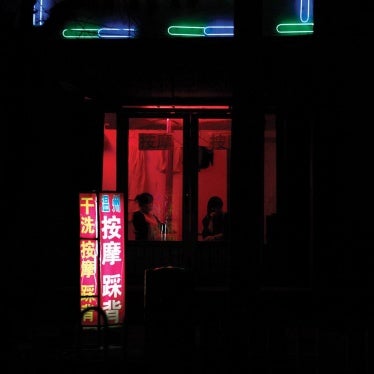For researchers like me who have spent years documenting the exploitation of migrant workers constructing Sochi Olympic venues, last week’s announcement that some workers would be paid millions in unpaid wages came as a stunning surprise – and with mixed feelings.
Russian Deputy Prime Minister Dmitri Kozak said inspections in late 2013 of more than 500 companies developing the Sochi sites had turned up several which had failed to pay their employees a total of 277 million rubles (US$8.34 million). He promised that these employers would pay the significant back wages.
While this is great news for these workers, it must be bittersweet for tens of thousands of other workers who have been toiling on Sochi sites over the last seven years. Human Rights Watch has documented pervasive nonpayment of wages and other abuses on Olympic sites since 2009. We’ve repeatedly called on the Russian authorities to undertake exactly the kinds of inspections they finally got around to late last year.
What the recent inspections haven’t addressed, though, is all the workers who already left Sochi, many of them dejected, resigned, and penniless after months of unpaid labor on Olympic sites. Where were the inspections that could have benefited them? What about the thousands of workers who have been rounded up and expelled, with not a second thought to their wages, all in the name of clearing Sochi from foreign workers ahead of the Games? What measures does Kozak have planned to ensure them and others who have left Sochi empty-handed their hard earned, but unpaid, wages, too?
Human Rights Watch has repeatedly asked the International Olympic Committee (IOC) to push the Russian authorities to end the pervasive exploitation of workers on Olympic sites. The IOC pushed back, ignoring the evidence in our report and insisting that it could address the issue only if Human Rights Watch turned over concrete names.
In October 2013, Human Rights Watch and a leading Russian human rights organization, Memorial, sent the IOC a list of the names of over 600 Sochi workers who claimed that their employers had failed to pay them the full wages owed to them and asked the IOC to intervene with the Russian authorities. More than three months later, we have received no response.
Kozak’s announcement should be no more than the first of multiple measures taken to redress all the workers who were illegally exploited on Olympic sites in Sochi. For it to stop here would render the announcement as little more than a grab for positive publicity, where there has been little recently for Russia.
With just a few weeks to go before the Games, the overwhelming majority of Sochi’s workers have packed up and gone home or headed to construction sites in other cities, maybe even for sites being readied for Russia’s hosting of the 2018 World Cup. I’m glad that at least some of those remaining in Sochi got what was owed to them. And, I hope that the knowledge gained by this eleventh-hour inspection campaign will benefit those who continue to be the backbone of Russia’s construction boom.







